How to Choose the Perfect Cat Breed for Your Lifestyle
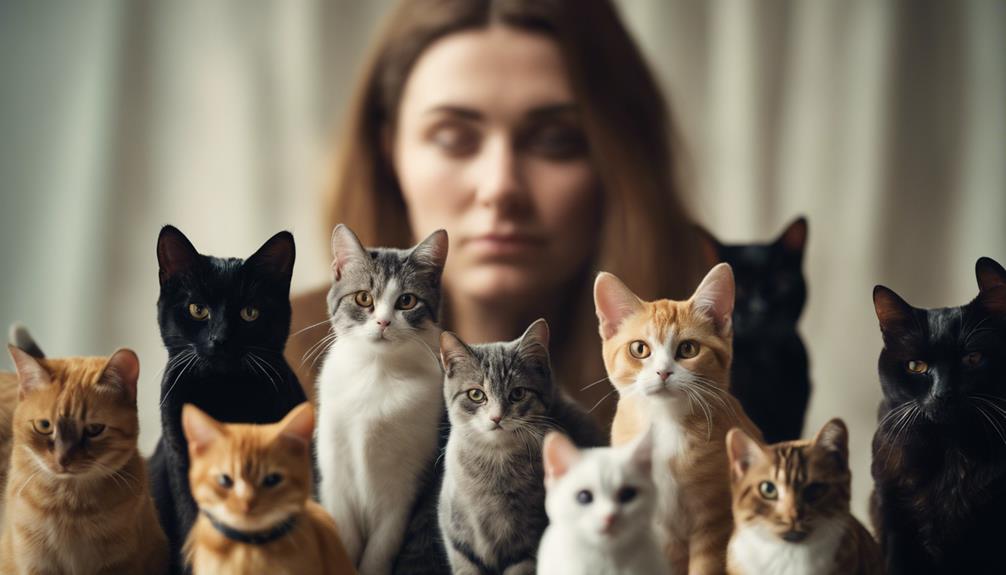
When it comes to choosing the perfect cat breed for your lifestyle, there are several factors to consider. These include the cat's temperament, activity level, grooming needs, and compatibility with other pets or family members. It's essential to research different breeds and their characteristics to find the right fit for you. Additionally, visiting local shelters or breed-specific rescues can help you meet different cats and see which one resonates with you. Remember, each cat is unique, so it's crucial to find a companion that matches your lifestyle and personality.
Understanding your own preferences and needs is key to finding the ideal feline companion. Take your time to interact with different cats, ask questions, and gather information before making a decision. By considering all these factors, you can ensure a harmonious and fulfilling relationship with your new furry friend.
Factors to Consider Before Choosing
Before deciding on a cat breed, it's essential to carefully assess various factors that will impact your choice. When considering cat breeds, one must think about their living environment, such as whether they reside in an apartment or a house. Certain cat breeds are better suited for smaller spaces like apartments, while others might require more room to roam freely.
Additionally, it's crucial to evaluate if you prefer an indoor or outdoor cat based on your lifestyle. Some cat breeds are more adaptable to being indoors, while others thrive when they've access to the outdoors.
Another factor to consider is the noise level tolerance in your home. Some cat breeds are known to be more vocal than others, which mightn't be suitable for every household.
Lastly, when choosing a cat breed, think about whether the cat will be around children or other pets in your household. This consideration is essential to ensure the compatibility and safety of all animals and individuals involved.
Activity Level and Space Requirements
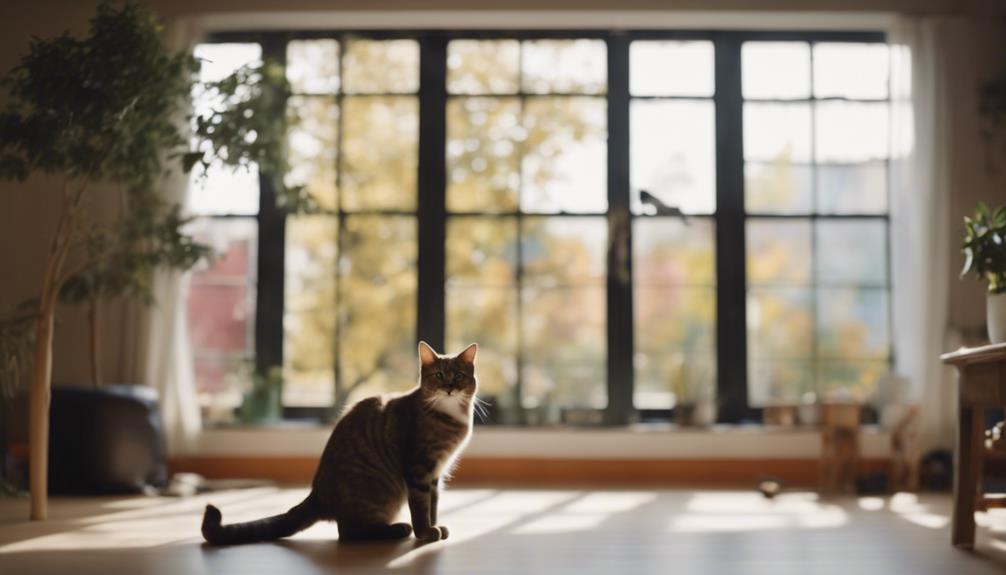
When selecting a cat breed, it's essential to consider their energy levels and how well they match your lifestyle. Different breeds have varying space requirements, with some thriving in larger homes while others are content in smaller living spaces.
Understanding these factors is crucial in ensuring a harmonious living environment for both you and your feline companion.
Energy Levels Considered
Considering the activity levels of different cat breeds is crucial when determining the space requirements for a harmonious living environment with your feline companion. Some breeds, like the Maine Coon, have high energy levels and require ample space for roaming and play. On the other hand, breeds such as Persians are more laid-back and can thrive in smaller living spaces. To help you understand the energy levels of various cat breeds, the table below outlines the general activity levels and space requirements to consider when selecting a cat breed that aligns with your lifestyle:
| Cat Breed | Activity Level | Space Requirements |
|---|---|---|
| Maine Coon | High | Larger space |
| Persian | Low | Smaller space |
| Abyssinian | High | Moderate space |
| Siamese | High | Moderate space |
| Bengal | High | Larger space |
Living Space Suitability
To create a harmonious living environment with your cat, it's essential to match the activity level and space requirements of the chosen cat breed to your living space. Consider the space requirements of the cat breed to ensure they've enough room to roam and play comfortably.
Some breeds, such as those with lower activity levels, are suited for apartment living due to their adaptability to smaller spaces. Conversely, larger and more active breeds may thrive in a house with ample room for exploration and play.
Matching the cat breed's activity level and space requirements with your living environment is crucial for fostering a happy and healthy pet-owner relationship. Be mindful of how the cat's needs align with the space you can provide to ensure a well-suited match.
Grooming Needs and Allergies
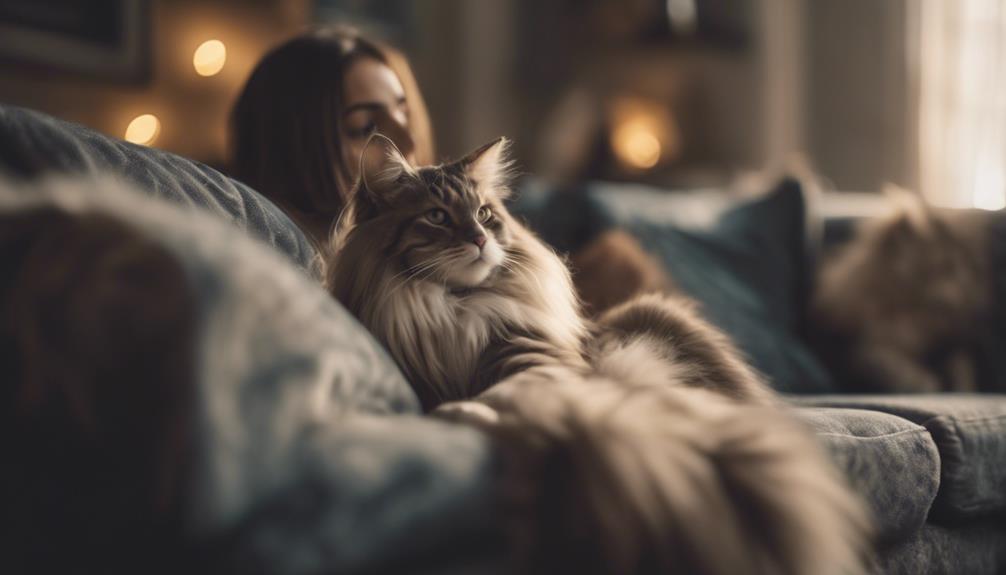
When considering a cat breed, it's essential to be aware of shedding control tips, hypoallergenic options, and the grooming requirements for each breed.
Some breeds, like the Devon Rex and Russian Blue, are known to shed less and are considered hypoallergenic choices for those sensitive to allergens.
Regular grooming not only helps maintain the cat's coat but can also reduce allergens present in their fur and dander, making it easier to manage potential allergies.
Shedding Control Tips
Regular grooming plays a crucial role in controlling shedding for cats with long coats, effectively reducing the amount of loose fur present in your living space. However, for those looking to minimize shedding and grooming needs, opting for shorthaired breeds like the Siamese or Burmese can be a practical choice. These breeds tend to shed less compared to longhaired counterparts, making maintenance easier for owners.
Brushing your shorthaired cat regularly can further help manage shedding and keep their coat healthy. Additionally, scheduling routine vet check-ups is essential to address any health issues that could be contributing to excessive shedding. By selecting a shorthaired breed and maintaining a consistent grooming routine, you can better control shedding and enjoy a cleaner living environment.
Hypoallergenic Breed Options
Hypoallergenic cat breeds, such as the Siberian and Russian Blue, are ideal choices for individuals with allergies due to their lower production of allergens like Fel d1. These breeds offer a solution for cat lovers who suffer from allergies but still want a feline companion.
Here are three hypoallergenic breed options to consider:
- Siberian Cats: Known for their lower allergen levels, Siberian cats are a popular choice for allergy sufferers.
- Russian Blue Cats: These cats produce less of the protein that causes allergies, making them a hypoallergenic option for many.
- Devon Rex Cats: With minimal shedding and less fur, Devon Rex cats are less likely to trigger allergies in sensitive individuals.
Regular Grooming Requirements
For individuals considering a cat breed that fits their lifestyle, understanding the grooming needs of different breeds is crucial, especially in relation to cat allergies. Some breeds, like Persians, require daily grooming to prevent matting and maintain their coats. Breeds with shorter fur, such as Siamese cats, may have lower grooming needs and shed less, making them a better choice for allergy sufferers.
Regular grooming not only keeps a cat's coat healthy but can also help reduce allergens in their fur and dander. Hypoallergenic breeds like Siberian cats are popular among those with allergies due to their reduced allergen production. Cats with hairless or short fur, like the Sphynx breed, may need occasional baths or skin care to maintain their appearance and skin health.
Understanding these grooming requirements is essential for providing proper care to your feline companion.
Temperament and Personality Traits
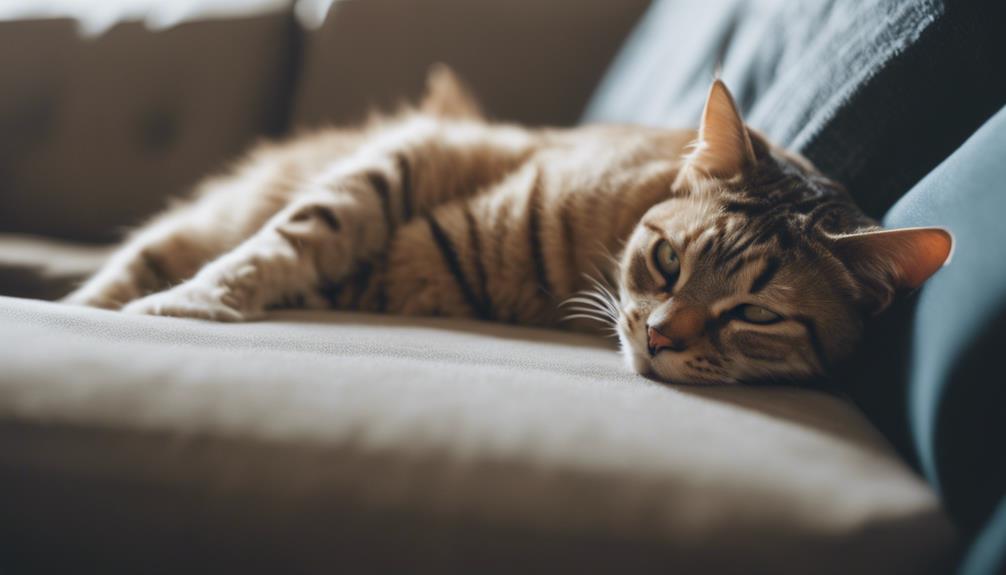
Understanding the unique temperament and personality traits of different cat breeds is crucial for aligning a feline companion with an owner's lifestyle and preferences. When choosing a cat breed based on temperament, consider the following:
- Affection Level: Some breeds are known for their high level of affection towards their owners, seeking constant attention and physical contact. On the other hand, some breeds are more independent and may prefer their space, showing affection in a more reserved manner.
- Activity Level: Cat breeds vary in their activity levels, with some being highly energetic and playful, requiring lots of stimulation and interaction. Conversely, there are breeds that are more laid-back and enjoy lounging around without needing much physical activity.
- Vocalization: Certain cat breeds are more vocal than others, expressing themselves through meows, purrs, and other sounds. If you prefer a quieter living environment, opting for a breed known for being less vocal might be more suitable.
Compatibility With Children or Other Pets
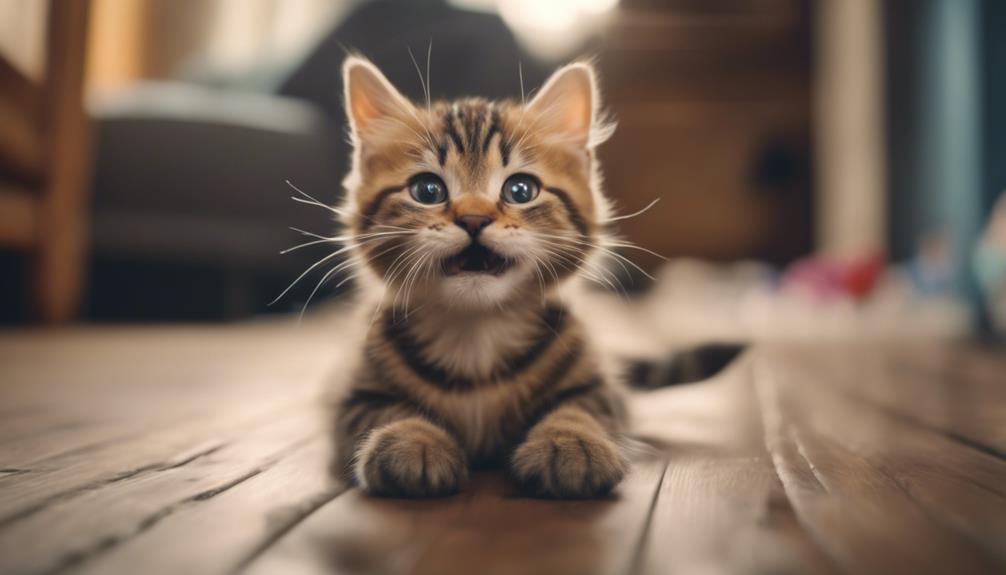
When selecting a cat breed for compatibility with children or other pets, it's essential to consider the temperament and social nature of the feline companion. Breed plays a crucial role in determining how well a cat will interact with kids and other animals.
For a family-friendly environment, consider breeds known for being good with children such as the Maine Coon, Ragdoll, and Birman. If you have other pets at home and seek harmony in a multi-pet household, look into cat breeds that are compatible with other animals like the Russian Blue, Abyssinian, and British Shorthair.
It's advisable to avoid breeds known for being aloof or aggressive around children or other pets, such as the Bengal, Siamese, and Scottish Fold, if you desire a more peaceful coexistence. Opt for breeds with a gentle and patient temperament like the American Shorthair, Chartreux, and Tonkinese for a smooth integration with children and other animals.
Prioritizing social and adaptable breeds like the Burmese, Devon Rex, and Turkish Van can facilitate positive interactions with both children and other pets.
Health and Medical Considerations
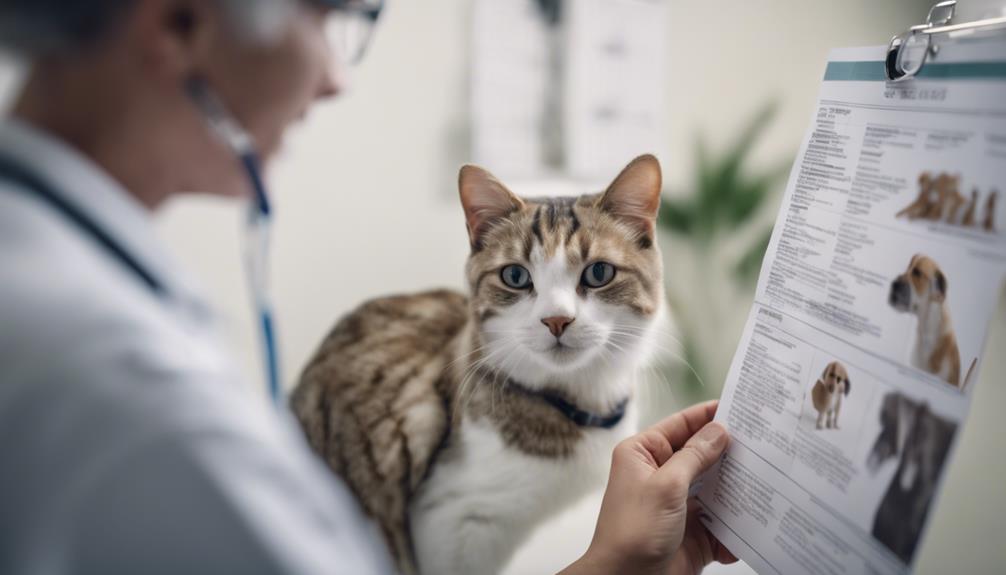
Considering the health and medical implications of different cat breeds is crucial when selecting the right feline companion for your lifestyle. When choosing a cat breed, it's important to:
- Research Potential Health Issues: Different cat breeds are prone to specific health problems. For example, Maine Coon cats may be susceptible to heart disease, while Persians could be at risk for kidney issues. Understanding these breed-specific health concerns can help you make an informed decision.
- Genetic Predispositions: Investigate the genetic predispositions of various cat breeds to gain insight into their likelihood of developing certain medical conditions. Knowing the genetic background of a breed can give you a better understanding of potential health risks your cat may face.
- Consult with a Veterinarian: Prior to choosing a cat breed, consult with a veterinarian to evaluate the long-term health implications of owning that particular breed. A professional opinion can provide valuable guidance in selecting a cat breed that aligns with your lifestyle and health considerations.
Finding the Perfect Match
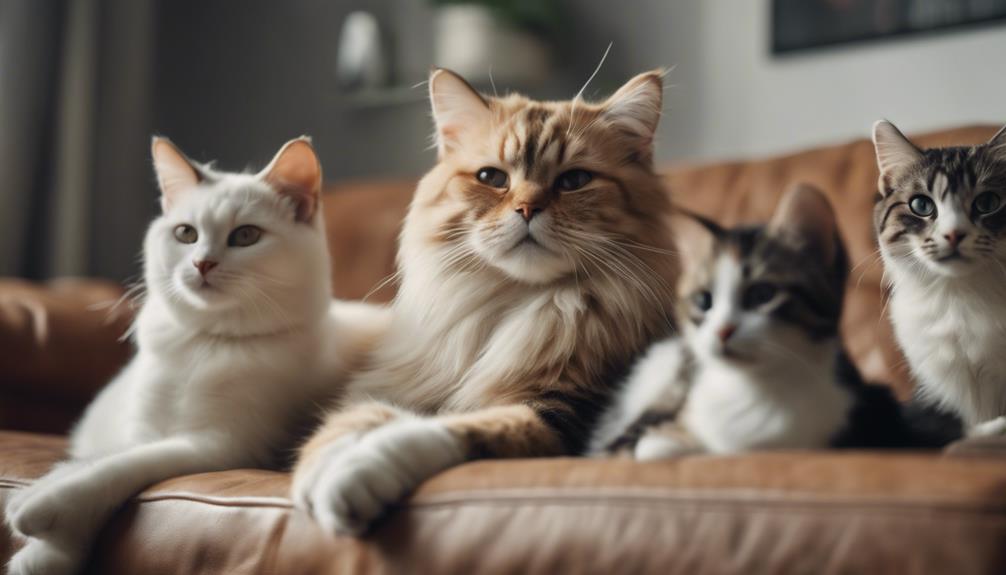
To find the perfect feline companion that aligns with your lifestyle, consider factors such as your daily routine, family dynamics, living space, and personal preferences. Different cat breeds have varying energy levels and sizes, so it's essential to evaluate these aspects to ensure a suitable match for your living situation.
Additionally, take into account any cat allergies within the family and the temperament of family members to find a breed that's compatible with everyone. Researching specific breed characteristics and traits will help in matching them with your family's lifestyle and ensuring compatibility, especially if you have children.
Exploring the energy levels and temperaments of various cat breeds is crucial in finding the perfect match for your household. By considering these factors and researching different breeds thoroughly, you can increase the chances of finding a cat that will fit seamlessly into your family and lifestyle.
Frequently Asked Questions
How Do I Choose the Right Cat for Me?
When choosing a cat, observe their litter box habits. This can indicate their cleanliness and compatibility with your home. Paying attention to this behavior early on can help in finding the right feline companion.
What Is the Best Breed of Cat to Own?
For those seeking a low-maintenance feline companion, a breed with minimal grooming requirements like the Russian Blue or the British Shorthair can offer a perfect balance of charm and convenience in daily care.
What Type of Cat Is the Most Affectionate?
When looking for affectionate breeds, Ragdolls, Siamese, Maine Coons, Burmese, and Sphynx cats stand out for their loving nature. They seek human interaction, form deep bonds, and display loyalty, making them ideal choices for those seeking a cuddly companion.
What Cat Breed Has Best Personality?
When considering cat breeds, it's essential to prioritize personality traits. Playful Persians stand out for their lively and sociable nature, making them an excellent choice for those seeking an interactive and engaging feline companion.











